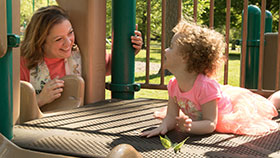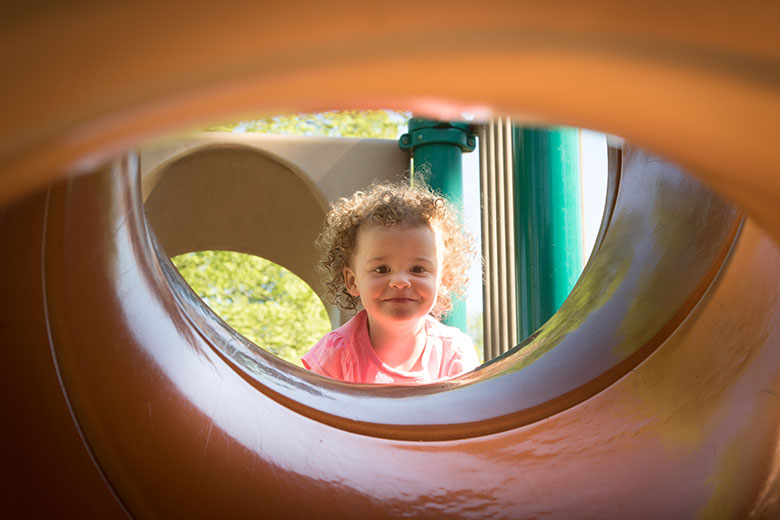What’s so serious about child’s play?
Dr. Joanna Cemore Brigden, associate professor of childhood education at Missouri State University, is committed to emphasizing the importance of play for children.
As a woman of many appellations, Brigden is most proud of her title as play researcher. She teaches outdoor play classes at MSU along with the graduate course, Life as Play, which teaches students the importance of giving children time to play, explore, create and imagine.
“The problem for us in the U.S. is we don’t have a lot of ‘play’ in school anymore, coupled with a reduction in free play outside of school. That’s a really huge concern of my research and advocacy efforts.” — Dr. Joanna Cemore Brigden
 Brigden is currently the Association for the Study of Play book review editor, an international organization of play scholars. In addition, she is also on the board of the International Play Association (IPA). The IPA’s purpose is protection, preservation and promotion of the child’s right to play as a fundamental human right.
Brigden is currently the Association for the Study of Play book review editor, an international organization of play scholars. In addition, she is also on the board of the International Play Association (IPA). The IPA’s purpose is protection, preservation and promotion of the child’s right to play as a fundamental human right.
“IPA works cooperatively with organizations through the UN in the service of children’s right to play throughout the world. This can range from research and advocacy in schools to facilitating play in war torn areas of the world or escaping slavery and trafficking,” said Brigden.
Brigden is currently working on a project studying outdoor play in a more compact, indoor urban play space, and she’s looking at it from a child’s perspective.
“It’s important to know how children view play in order to create a workable space for them,” said Brigden. “This is also a great way to determine how emotionally intelligent children are these days.”

Brigden strives to educate community on the importance of foster families
Her interests go beyond fun and games; she has a passion for improving the lives of children which also includes parent and teacher education and advocacy for greater community resources.
Brigden and Deanna Hallgren, director of the Missouri State Child Development Center, recently received a grant from the Department of Elementary and Secondary Education (DESE) to enhance childcare, improve services and provide training for professionals who work with foster parents and children. In the training, teachers receive information specific to the needs of foster and adopted children in the classroom.
Brigden, who is also a foster parent, believes teachers sometimes do not understand the struggle it is for a child to uproot their lives and behave normally after joining the foster system.
“The goal we are trying to achieve with DESE is for all children to be ready to learn,” said Brigden. “If an child would not be ready to learn, it would be a foster child whose world has been completely turned upside down in a new house and possibly a new school.”
 Get moving: significance of interactive play
Get moving: significance of interactive play
The relationship between play and emotional intelligence caught the attention of producers for the children’s program and off-broadway show “The Ohmies.” They enlisted the help of Brigden in constructing a social and emotional curriculum for one of their shows, which incorporate imagination play, yoga and dance to get children out of their seats and using their bodies to have fun.

